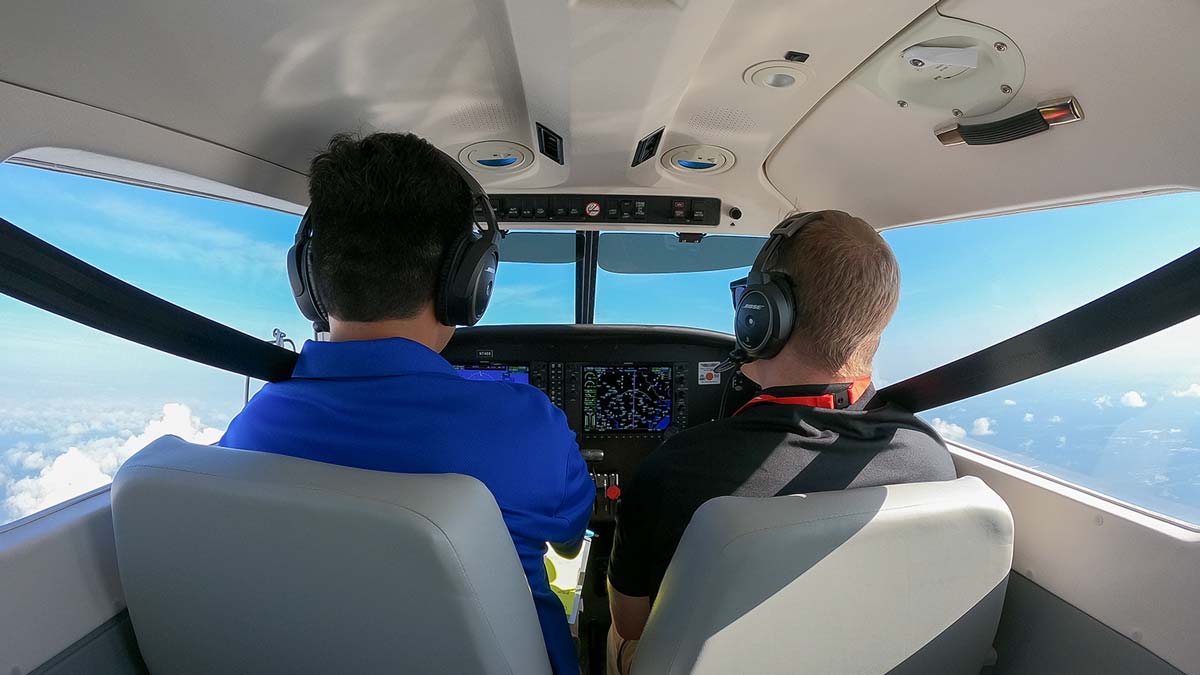If you ask a child what they would like to be when they became an adult, “pilot” is still in the top of the list. It’s a career wrapped in technological precision, adventure and freedom. Once the dream becomes reality, though, hopeful aviators start asking themselves: what do pilots actually make and is the investment worth it?
The answer to this question isn’t straightforward as a simple number. Understanding the current salary of airline pilots is navigating a complex mix of starting wages and growth rates, benefit structures and real-life trade-offs that affect the financial side of aviation.

Image credit: flightschoolusa.com
Start Small: What makes many pilots are based in the regional world
The majority of pilots do not walk straight into the cockpit of the Boeing 787. Their careers usually begin at regional airlines that fly smaller planes and taking shorter routes. The compensation for these entry-level jobs reflects the fact that these jobs are a training ground to become future captains.
Regional airline pilot salaries range from $45,000 to $70,000, depending on the airline, and whether or the pilot has previous experience in flight. Regional experience may seem in comparison to the cost of flight school, however it’s a key factor to more opportunities. Regional airlines are increasing their salaries quickly because of the shortage of pilots.
Commercial Pilot Salary: Not Always What You Think
Then things start to become interesting. Commercial pilots aren’t necessarily operating for major airlines. You are legally authorized to fly for money. This could include cargo, charter sightseeing, crop-dusting firefighting, or corporate jets. Each of these routes offer radically different compensation packages.
A charter captain may earn $60,000 while a Gulfstream G650 business captain can earn up to $200,000 a year. The extent of commercial pilot salary varies so extensively because the roles and the risks are different too. Contrary to the formal airline seniority, pay in the commercial sector is usually determined by negotiations, contract terms and aircraft types.
The numbers begin to grow massive
Pilot salary USA for those who climb the ranks and join a major airline, the numbers start looking much more appealing. The first officer of one of the major U.S. carrier might earn between $90,000 to $150,000. Meanwhile, a senior captain who travels on international wide-body routes could earn anywhere from $300,000 up to $400,000.
However, those numbers do not show the entire picture. High seniority often comes with hectic schedules, long-haul fatigue and compromises in your lifestyle. It’s an enjoyable career, however, it’s not always the most glamorous one.
What doesn’t your pay-check show
Benefits are the main focus of any discussion on airline pilot salaries. Many pilots see value in these benefits beyond the amount. From medical insurance coverage that is comprehensive and pension plans to travel privileges which extend to family members, the perks can be a major difference in overall quality of life.
Many airlines offer bonuses for pilots who have experience, for example bonus offers for signing up of up to $75,000 and higher amounts, if they have military backgrounds or ratings. These bonuses reflect an urgent need for professionals, given the aging pilot population and the rising demand for flights across the U.S.
Is It Worth It?
The process to become pilots in the U.S. isn’t just demanding it’s expensive. The cost of flight school ranges between $70,000 and $150,000, but most pilots don’t make six figures until several years into their career. But the long-term payoff is tangible.
Pilots usually enjoy job stability along with structured advancement and the kind of schedule flexibility that many other professions envy. The perspective from the cockpit as well as the pleasure of flying in a plane are more significant to many than the salary.
Final Thoughts
A pilot salary in the USA does not just revolve around numbers; it’s about the journey, growth and a life style. The aviation industry offers more than a paycheck to those who want to fly and able to put the time, effort, and money into it. If you’re thinking about regional work, commercial charters or long-haul flights out of the country every step will bring more money but also a wider perspective.